- عنوان کتاب: Big Data and Artificial Intelligence for Decision-Making in the Smart Economy
- نویسنده: Aziza Karbekova, Ladislav Žák, Ivan Milenković
- حوزه: اقتصاد هوشمند
- سال انتشار: 2025
- تعداد صفحه: 454
- زبان اصلی: انگلیسی
- نوع فایل: pdf
- حجم فایل: 12.2 مگابایت
کلانداده و هوش مصنوعی (AI) هسته فناوری اقتصاد هوشمند را در عصر کنونی صنعت ۴.۰ تشکیل میدهند. آنها به عنوان راهحلهای فنی مستقل و در ترکیب با سایر فناوریهای پیشرفته مورد استفاده قرار میگیرند. ارزش کلانداده و هوش مصنوعی در توانایی جمعی آنها در خودکارسازی سیستماتیک فعالیتهای نظارتی و تحلیلی نهفته است.
این خودکارسازی، تصمیمگیری را به یک فرآیند با فناوری پیشرفته تبدیل میکند که به عنوان پایه و اساس سایر فرآیندهای اقتصادی در یک اقتصاد هوشمند عمل میکند. با خودکارسازی تصمیمگیری، سیستمهای سایبری-فیزیکی استقلال پیدا میکنند و پیشرفت انقلاب صنعتی چهارم را به پیش میبرند. با این حال، چالش در این واقعیت نهفته است که جنبههای مختلف خودکارسازی تصمیمگیری در اقتصاد هوشمند، که توسط کلانداده و هوش مصنوعی هدایت میشوند، در ادبیات موجود به طور جداگانه مورد مطالعه قرار گرفتهاند.
جنبه اول، سازمانی و مدیریتی است. حتی با وجود کلانداده و هوش مصنوعی آماده برای پیادهسازی، کاربرد عملی آنها در تصمیمگیری نیازمند پیشرفتهای علمی و روششناختی مناسب است که ویژگیهای فرآیندهای مدیریتی، صنایع و زمینه ملی اقتصاد هوشمندی را که در آن استفاده میشوند، در نظر بگیرد. اگرچه ادبیات موجود برخی توصیههای روششناختی ارائه میدهد، اما پایه روششناختی کلی برای اتوماسیون تصمیمگیری در اقتصاد هوشمند مبتنی بر کلانداده و هوش مصنوعی همچنان ضعیف است.
روشهای متنوعی برای ترکیب این فناوریها در تصمیمگیری، توالی کاربرد آنها و توزیع بارهای عملکردی بین ابزارهای اتوماسیون وجود دارد. نهادهای اقتصادی در اقتصاد هوشمند به دستورالعملهای روشنی در مورد بهکارگیری کلانداده و هوش مصنوعی در شیوههای تصمیمگیری خود نیاز دارند. بنابراین، لازم است اقدامات سازمانی و مدیریتی در اقتصاد هوشمند و مزایای مورد انتظار آنها برای مدیریت، از جمله افزایش کارایی تصمیمگیری، منطقیسازی و کاهش خطر خطاهای تصمیمگیری، مشخص شود.
جنبه دوم، اقتصادی است. اقتصاد هوشمند نمایانگر پدیدهای از اتوماسیون تصمیمگیری در زمینههای مختلف فعالیت اقتصادی است که انسانها را از عملیات مدیریتی حذف میکند و تأثیری از هوشمندسازی سیستمهای سایبری-فیزیکی ایجاد میکند. در حالی که درک مفهومی کلی از اقتصاد هوشمند شکل گرفته و به طور گسترده پذیرفته شده است، شکافهای اساسی در مورد اینکه کدام حوزههای خاص فعالیت و فرآیندهای اقتصادی میتوانند و باید خودکار شوند، وجود دارد. اگرچه راهحلهای خاصی در بسیاری از عملیات اقتصادی وجود دارد، اما همه این عملیات مشمول اتوماسیون کامل نیستند. در برخی موارد، اتوماسیون تنها میتواند با قابلیتهای فعلی کلانداده و هوش مصنوعی جزئی باشد. علاوه بر این، توجیه مالی بازگشت سرمایه در اتوماسیون تصمیمگیری برای هر توسعه کاربردی و عملیات اقتصادی ضروری است. بنابراین، تعمیم تجربیات انباشته و در نظر گرفتن پیشبینیهای آینده برای توسعه اقتصاد هوشمند ضروری است.
جنبه سوم، اخلاقی است که شامل ملاحظات اجتماعی-حقوقی و زیستمحیطی میشود. اخلاق کلانداده و هوش مصنوعی شامل پیامدهای بحثبرانگیز اتوماسیون تصمیمگیری در اقتصاد هوشمند است که حمایت و انتقاد را برمیانگیزد. درک روانشناختی از ظهور یک جامعه و اقتصاد مبتنی بر داده، در بین نمایندگان دستههای مختلف اجتماعی بسیار متفاوت است.
گذار از دادههای شخصی به دادههای تجمیعشده ناشناس میتواند درک فناوری از کلانداده و هوش مصنوعی را بهبود بخشد. علاوه بر این، اقدامات سازگاری اجتماعی برای نوسازی اقتصاد از منظر اجتماعی ضروری است. این اقدامات طیف گستردهای را شامل میشود، از توسعه زیرساختهای مخابراتی و پر کردن شکافها در مهارتهای دیجیتال گرفته تا کاهش شکاف دیجیتال با پرداختن به نابرابری درآمد.
اتوماسیون تصمیمگیری در اقتصاد هوشمند مبتنی بر کلانداده و هوش مصنوعی نیز به یک چارچوب نهادی و قانونی قوی نیاز دارد. اولویتهای اصلی در دستور کار قانونی اقتصاد هوشمند شامل موضوع ثبت و حفاظت از حقوق مالکیت معنوی برای هوش مصنوعی و کلانداده و خروجیهای خلاقانه تولید شده توسط هوش مصنوعی است. مسئله مسئولیت در قبال تصمیمات گرفته شده توسط هوش مصنوعی، که ممکن است به دلیل دادههای بزرگ ناکافی، تحریف شده یا تفسیر نادرست نادرست باشند، نیز قابل توجه است.
علاوه بر این، پیامدهای زیستمحیطی اتوماسیون تصمیمگیری در اقتصاد هوشمند مبتنی بر دادههای بزرگ و هوش مصنوعی نیاز به مطالعه علمی و کاهش دارد. اطمینان از بهرهوری بالای انرژی در جمعآوری دادههای بزرگ و بهرهبرداری از هوش مصنوعی بسیار مهم است. همچنین لازم است از دادههای بزرگ و هوش مصنوعی برای تصمیمگیریهای زیستمحیطی، گذار به انرژی پاک و حمایت از رشد سبز و کربنزدایی استفاده شود.
جنبه چهارم، فناوری است. اگرچه درک کلی از کاربرد دادههای بزرگ و هوش مصنوعی در شیوههای کلیدی تصمیمگیری ایجاد شده است، اما برخی از جزئیات فنی هنوز نامشخص است. به ویژه، مسائل مربوط به ارتباط انسان و ماشین در جمعآوری دادههای بزرگ و پشتیبانی از تصمیمگیری نیاز به مطالعه عمیق و توسعه کاملتر دارد.
Big data and artificial intelligence (AI) form the technological core of the smart economy in the current era of Industry 4.0. They are utilized as independent technical solutions and in combination with other advanced technologies. The value of big data and AI lies in their collective ability to systemically automate monitoring and analytical activities.
This automation transforms decision-making into a high-tech process that serves as the foundation for other economic processes in a smart economy. By automating decision-making, cyber-physical systems gain autonomy, propelling the progress of the Fourth Industrial Revolution. However, the challenge lies in the fact that the various aspects of decision-making automation in the smart economy, driven by big data and AI, are studied separately in the existing literature.
The first aspect is organizational and managerial. Even with ready-to-implement big data and AI, their practical application in decision-making requires appro-priate scientific and methodological developments that consider the peculiarities of managerial processes, industries, and the national context of the smart economy in which they are used. Although existing literature offers some methodological recom-mendations, the overall methodological foundation for decision-making automation in the smart economy based on big data and AI remains weak.
There is a wide variety of ways to combine these technologies in decision-making, sequences for their application, and distribution of functional loads among automa-tion tools. Economic entities in the smart economy need clear instructions on applying big data and AI to their decision-making practices. Therefore, it is necessary to specify the organizational and managerial measures in the smart economy and their expected benefits for management, including increased decision-making efficiency, rationalization, and reduced risk of decision errors.
The second aspect is economic. The smart economy represents a phenomenon of decision-making automation across various fields of economic activity, displacing humans from managerial operations and creating an effect of intellectualizing cyber-physical systems. While the general conceptual understanding of the smart economy is formed and widely accepted, there remain fundamental gaps regarding which specific areas of economic activity and processes can and should be automated. Although certain solutions exist in many economic operations, not all of these operations are subject to complete automation. In some cases, automation can only be partial with the current capabilities of big data and AI. Additionally, it is necessary to financially justify the return on investment in decision-making automation for each applied development and economic operation. Thus, it is essential to generalize accumulated experience and consider future forecasts for the development of the smart economy.
The third aspect is ethical, encompassing social-legal and environmental consider-ations. The ethics of big data and AI involves contentious consequences of decision-making automation in the smart economy, eliciting support and criticism. The psychological perception of the emergence of a data-driven society and economy is highly differentiated among representatives of various social categories.
The transition from personal to anonymized aggregated data can improve the technological perception of big data and AI. Additionally, social adaptation measures are necessary to modernize the economy from a social perspective. These measures range widely, from developing telecommunications infrastructure and filling gaps in digital skills to reducing the digital divide by addressing income inequality.
The automation of decision-making in the smart economy based on big data and AI also requires a robust institutional and legal framework. The top priorities in the legal agenda of the smart economy include the issue of registering and protecting intellectual property rights for AI and big data and the creative outputs generated by AI. The question of liability for decisions made by AI, which may be incorrect due to insufficient, distorted, or misinterpreted big data, also warrants attention.
Furthermore, the environmental consequences of decision-making automation in the smart economy based on big data and AI require scientific study and mitigation. It is crucial to ensure high energy efficiency in collecting big data and operating AI. It is also necessary to leverage big data and AI to make environmental decisions, transition to clean energy, and support green growth and decarbonization.
The fourth aspect is technological. Although a general understanding of applying big data and AI in key decision-making practices has been established, some technical details remain unclear. Particularly, the issues of human–machine communication in big data collection and decision-making support require in-depth study and more thorough development. These include questions of linguistics, visual image recog-nition, and the creation of user-friendly interfaces for big data and AI, as well as machine learning issues.
This book aims to bridge the gap between these aspects and provide a compre-hensive understanding of decision-making automation. This book aims to form a systemic vision of decision-making in the smart economy in the context of Industry 4.0 using big data and AI. The book’s contribution to the development of scientific literature on big data and AI lies in uncovering the “black box” of decision-making automation in the smart economy using these technologies.
The theoretical significance of the research results presented in the book is explained by their clarification of the role and importance of big data and AI in decision-making in the smart economy. The book’s practical significance is expressed in its extensive coverage of international experiences in decision-making automation in the smart economy, using examples from Armenia, Kyrgyzstan, and other Central Asian countries, as well as from countries in various economic categories, classified by income levels.
The managerial significance of the scientific and practical developments included in this book lies in their potential to optimize decision-making practices in the smart economy through the more flexible and efficient application of big data and AI. The book is unique because it contains exclusive case reviews from Central Asia, applied algorithms, and innovative mechanisms for utilizing big data and AI to automate decision-making in the smart economy.
The book’s content is divided into four parts. The first part presents advanced organizational and economic models for decision-making based on big data and AI. The second part explores the latest trends in the development of the smart economy utilizing big data and AI. The third part explains the socio-environmental and legal aspects of the ethics of using big data and AI technologies. The fourth part provides forward-looking applied solutions for decision-making in the smart economy based on big data and AI.
The book is primarily intended for scholars studying big data and AI. Represen-tatives of this target audience will find a comprehensive overview of the possibilities and limitations of automating decision-making in the smart economy, along with thorough scientific justification for using big data and AI in this process.
Additionally, the book may be of interest to practitioners in the smart economy. Decision-makers in the smart economy will gain a holistic understanding of the benefits and organizational-economic frameworks for automating decision-making using big data and AI, along with practical recommendations for leveraging these advantages and implementing the proposed schemes.
این کتاب را میتوانید از لینک زیر بصورت رایگان دانلود کنید:
Download: Big Data and Artificial Intelligence for Decision-Making in the Smart Economy





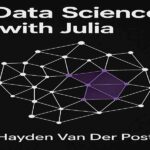
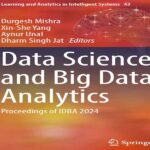
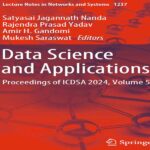


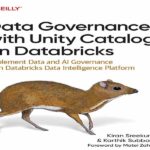

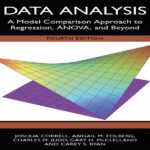
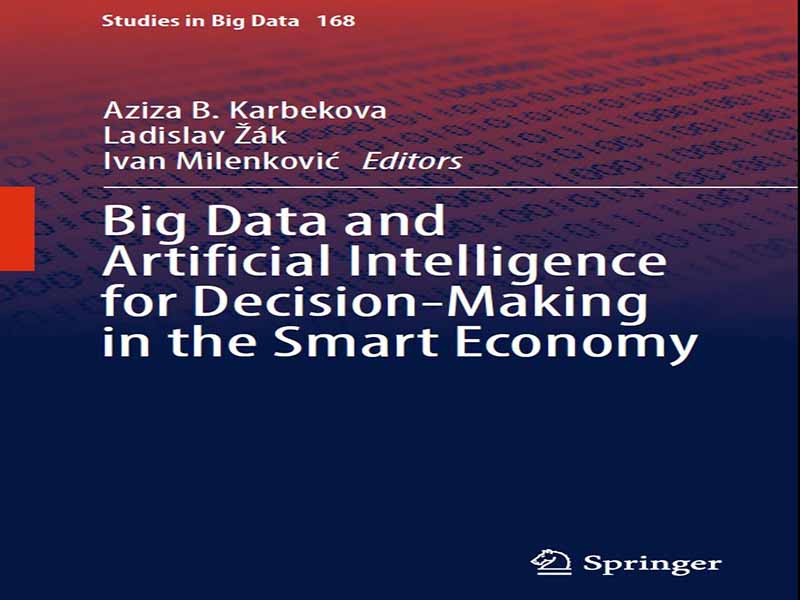






















نظرات کاربران